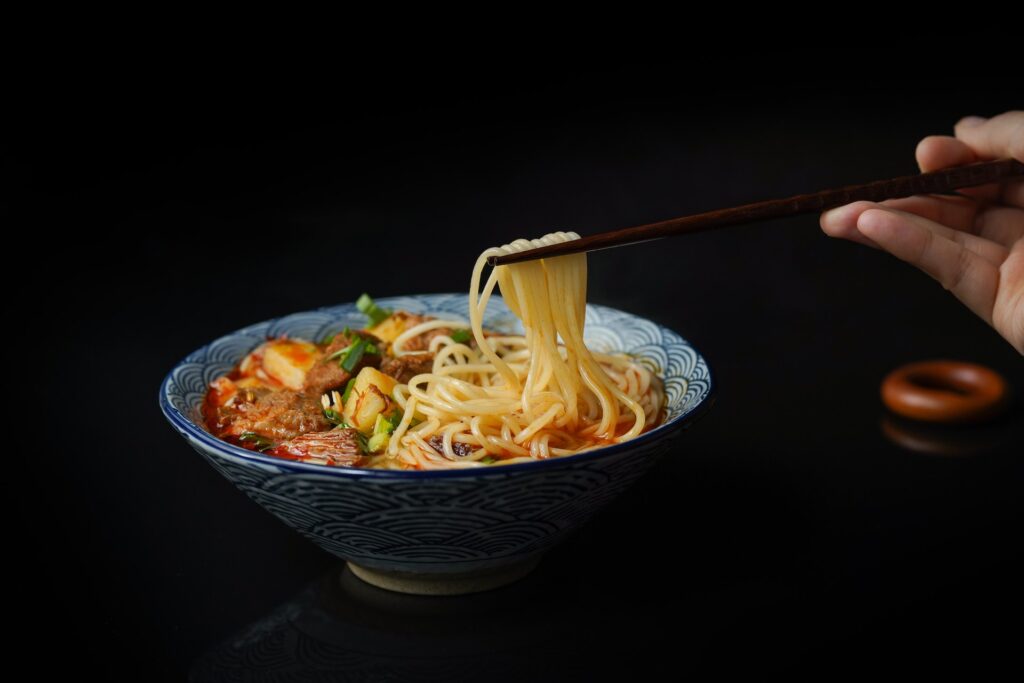
Federal Court Expunges Trademark Registration in Canada on the Ground of Bad Faith
In May 2022, the Canadian Federal Court stopped serial filer, Wei Meng, in his tracks, when it ordered expungement of his Canadian trademark registration, which registration was clearly obtained in bad faith.
Bad faith became an independent ground of opposition and trademark invalidity in Canada in 2019 when the Trademarks Act was amended.
Since then, the legal landscape had not quite seen an express pronouncement on what really constitutes bad faith. Thankfully, this was all to change in May 2022, in the Federal Court case of Beijing Judian Restaurant Co. Ltd. v Meng.
In this case, Beijing Judian (BJ), the owner of a popular restaurant chain in China, applied to the Federal Court for an order invalidating a Canadian registration for the trademark JU DIAN & design (in Chinese characters) as depicted below:

The registration was obtained in the name of Wei Meng, an individual unknown to and unassociated with BJ.
Background
Since 2005, BJ operated a chain of restaurants in China under the JU DIAN & design trademark, and by 2020 owned close to 40 restaurants that had become well-known and well-attended in China.
In fact, between 2011 and 2019, BJ’s JU DIAN restaurants had served over 5,750,000 customers.
In 2018, BJ began operating in Canada, having opened two restaurants in British Columbia, both of which operated under his JU DIAN trademark. The BC restaurants became very well amongst the Chinese Canadian contingent there, and between October 2018 and 2020, generated approximately 3.8 million dollars in revenue.
Unbeknownst to BJ, Wei Meng, an individual residing in Richmond, BC applied, on June 27, 2017, to register the identical JU DIAN Chinese character mark as a trademark in Canada for restaurant services. The application, being unopposed, matured to registration in 2019.
Approximately one week after Meng secured registration, he attended BJ’s restaurant, in British Columbia, asserting that BJ “stole his trademark” and further that he had the “paperwork in Canada” to show that he was the lawful owner of the mark.
Following this, Meng demanded that BJ paid him 1.5 million dollars to acquire the Canadian registration of the mark.
Having refused the demand, BJ was later met with a cease-and-desist letter from Meng threatening to contact the “registry department” and the Canadian Revenue Agency if BJ did not desist from using the JU DIAN mark with his restaurants in Canada.
Meng, later on, began to advertise the JU DIAN registration for sale to the public, purporting to license the same for $100,000 per year. In response to an inquiry for purchase, Meng stated as follows:
“$100,000 a year is merely one person’s salary, no other service fees. You won’t find another franchise as low as this price. If you open a store with no reputation, you’ll lose even more money [than my asking price]. You can search JuDian Chuan Ba on Baidu and you will see how many stores are in Beijing. Anyone in the industry knows powerful brands attract customers. If you are interested, contact me.”

Federal Court Ruling
The Federal Court expunged Meng’s registration on the ground that it was obtained in bad faith.
Noting that the Trademarks Act, did not introduce a definition of bad faith, the court helpfully considered the objective and purpose (as expressed in legislative summaries) of the bad faith prohibitions in the Trademark Act being to:
“hinder the registration of a trade-mark for the sole purpose of extracting value from preventing others from using it”
And
“prevent the abusive use of the trademark regime, such as by applying for registration with the sole intention of seeking remuneration from the legitimate owner of the trademark.
Importantly, the court noted that the intentional filing of an application for a trademark, used by another person, in another country, is not, without more, enough to invalidate a registration. As the court noted, there may be a legitimate basis to obtain a registered trademark in Canada for the same mark that is registered and used by a third party elsewhere where there is no reputation in Canada.
In this case, however, the court found that there was sufficient evidence to establish that BJ had some reputation in his JU DIAN trademark in Canada, at least among the Chinese Canadian population at the time when Meng filed his application.
Affiants, on behalf of BJ, spoke of their personal knowledge of Canadian residents visiting the restaurants in China, and having become knowledgeable of BJ’s use of his trademark through his several promotional campaigns on social media.
In fact, Meng himself indicated his awareness of the reputation in the JU DIAN trademark as was seen in his correspondence (outlined above) to the proposed purchaser of his registration.
In coming to its decision, the court relied heavily on evidence that overwhelmingly showed Meng’s intention to register the mark solely for the purpose of extorting money from BJ or to use BJ’ s reputation to obtain money from others.
The key factors grounding the court’s finding are as follows:
- Meng knew of the reputation in BJ’s JU DIAN mark both in China and Canada;
- Meng registered a trademark that was identical to BJ’s JU DIAN mark for identical services;
- One week after obtaining registration, Meng attempted to sell his registration to BJ for 1.5 million, a cost “well above any cost associated with obtaining the trademark.”
- Meng tried to sell the registration to the public after BJ refused to pay the above sum;
- Meng had applied to register the trademarks of several well-known Asian restaurants; and
- Meng did not use and had no intention to use the trademark to open a restaurant of his own
Thankfully, the Federal Court stopped this trademark troll in his tracks and expunged his registration from the trademarks register.
Takeaways
- This case emphasizes the need for brand owners to consistently monitor the use of their trademarks. In particular, it highlights the significant costs that a brand owner can encounter if bad faith applications are not opposed when they are advertised for opposition in the trademark gazette.
- If BJ had successfully opposed Meng’s trademark application, when it was advertised, then a Federal Court action would not have been necessary. As one can well imagine, the cost to initiate and carry a claim in the Federal Court is mammoth as compared to the cost of opposition proceedings before the Trademarks Opposition Board.
- Regular monitoring of the trademark gazette for advertised applications and opposition proceedings (where necessary) should be considered as a brand protection strategy by brand owners (as and where appropriate).
- Constant online and marketplace monitoring and swift steps toward trademark enforcement (where necessary) must always be top of mind.
- Foreign brand owners should also consider early filing in Canada where there is a fair to strong possibility that their business may expand here. Early filing in Canada, even well before the mark is in use, can be a very effective step to prevent trademark trolls from obtaining bad faith registrations in Canada.
- If BJ had a pending application on file, Meng’s application would not have matured to registration, and BJ would have saved thousands of dollars in legal fees.
- If you would like to discuss or review your current IP protection strategy, we would be happy to assist. Book a consultation with us, and let us deep dive into your current regime to make sure you are protected against trademark trolls.



